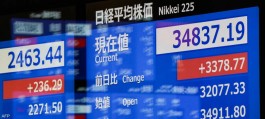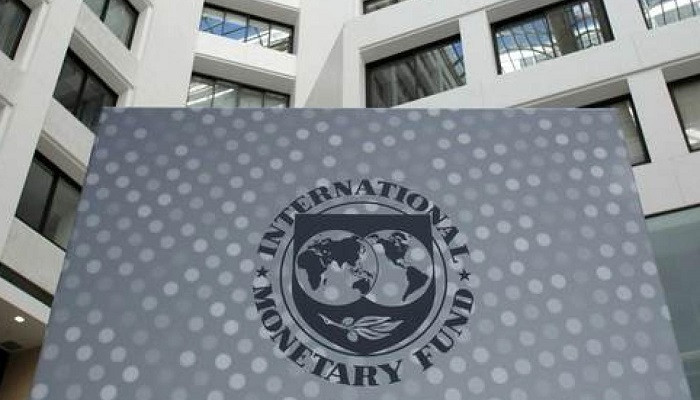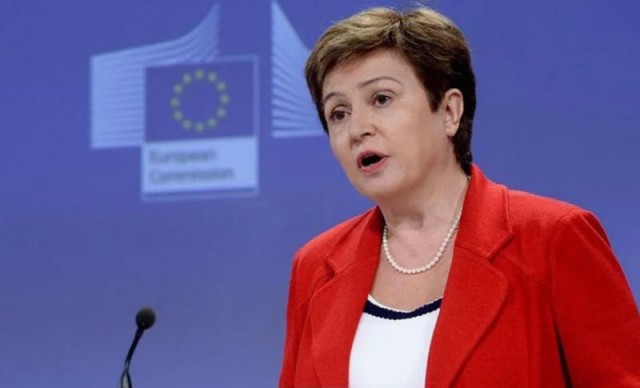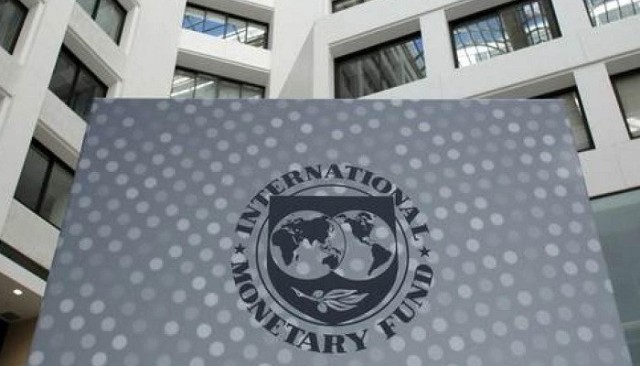The International Monetary Fund raised its forecast for the growth of the global economy to 2.9% in 2023, compared to reducing the estimated growth by 3.4% in 2022, while reducing growth expectations for the current year in the Middle East and North Africa by about 0.4%.
On Tuesday, the IMF, in its first review in 2023, lowered its forecast for Saudi gross domestic product growth by 1.1 percentage points to 2.6% in 2023, and expected the kingdom to grow by 3.4% in 2024.
The Fund's latest global economic forecasts indicated a slowdown in the overall growth of the economies of the Middle East and Central Asia this year to 3.2%, which is 0.4 percentage points lower than its estimates in October, due to reasons including the effects of the war in Europe.
Economic advisor and director of the fund's research department, Pierre-Olivier Gorinchas, said that the review of the region mainly reflects the reductions of Egypt and Saudi Arabia, due to reasons including the impact of the war in Ukraine and its repercussions on commodity prices.
He added that for Saudi Arabia, the decline in crude oil production within the framework of the OPEC + agreement also has an impact.
“The situation is very difficult for oil importers in the region, many of whom are heavily indebted, and therefore food prices and energy prices, which are still high, constitute a great burden,” said the Deputy Director of the Research Department at the International Monetary Fund, Petya Koeva Brooks. “The cost of living crisis is still present.” And influential in that region, so there is also the risk of social unrest.”
The Fund also expected inflation to ease this year as a result of sharp interest rate increases by the Federal Reserve and other major central banks. The IMF expects consumer inflation to decline from 8.8% last year to 6.6% in 2023 and 4.3% in 2024.
The IMF predicted that the Chinese economy - the second largest in the world after the United States - would grow by 5.2% this year, up from an October forecast of 4.4%.
The IMF's growth forecasts for 2023 have improved for the United States (expected to grow by 1.4%) as well as for the 19 countries sharing the euro (0.7%).
The International Monetary Fund said that Europe, despite suffering from energy shortages and price hikes resulting from Russia's invasion of Ukraine, had proved to be more resilient than expected. The European economy benefited from a warmer-than-expected winter, which led to lower demand for natural gas, and the Russian economy, which was hit by sanctions, proved more stable than expected as well.
The IMF expected Russia to grow by 0.3% this year. That would indicate an improvement from a 2.2% contraction in 2022. This is much higher than the 2.3% contraction for 2023 that the International Monetary Fund forecast for Russia last October.
The UK is a stark exception to the IMF's brighter outlook for 2023. After forecasting its economy to contract by 0.6% in 2023, in October, that reversed to a forecast of 0.3% growth.
On the other hand, the International Monetary Fund indicated that the global economy still faces serious risks. They include the possibility that the war in Ukraine will escalate, that China will suffer a sharp increase in coronavirus cases, and that high interest rates will cause a financial crisis in heavily indebted countries.










































